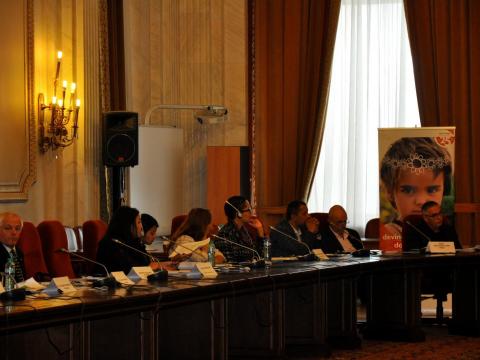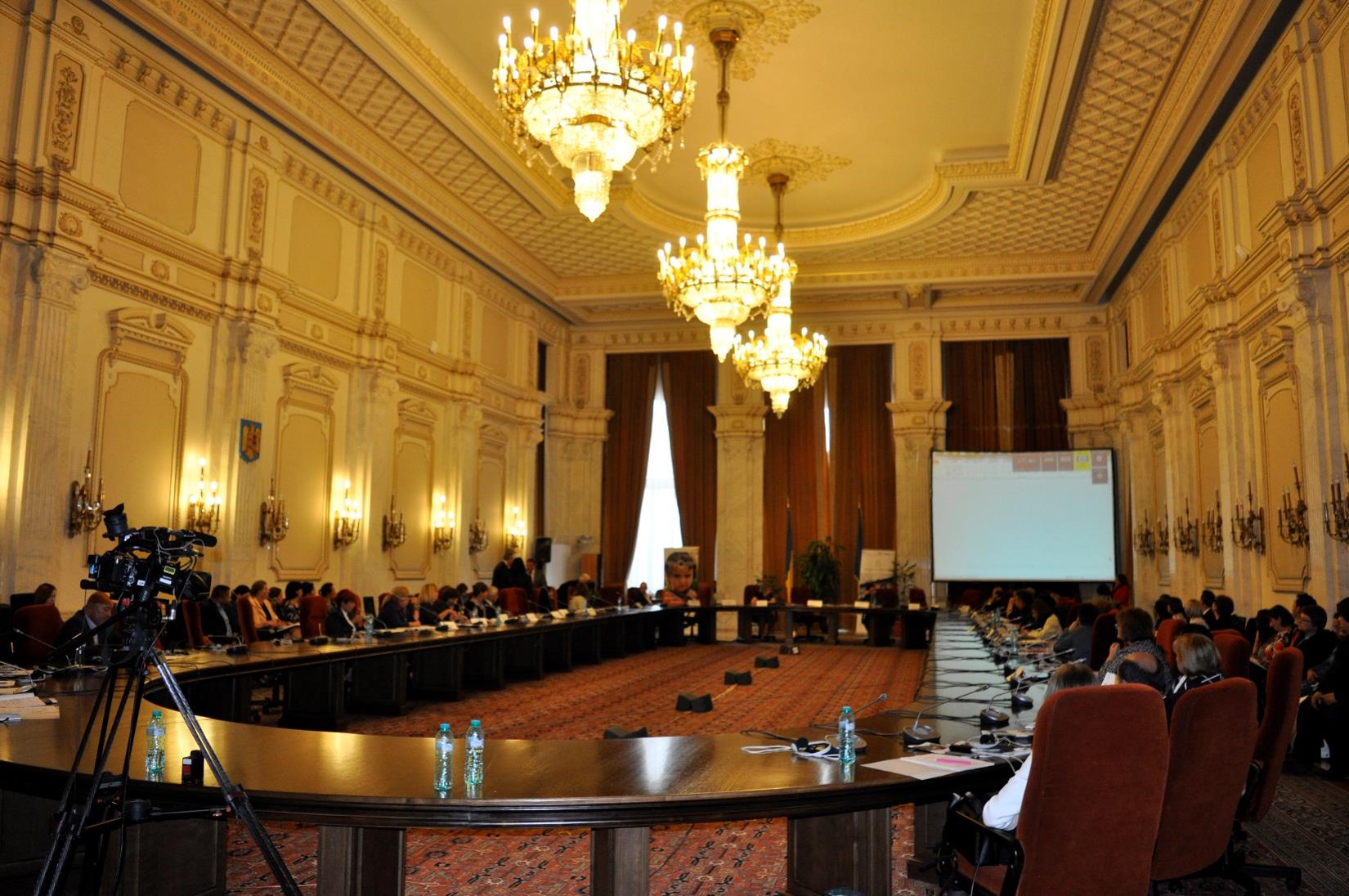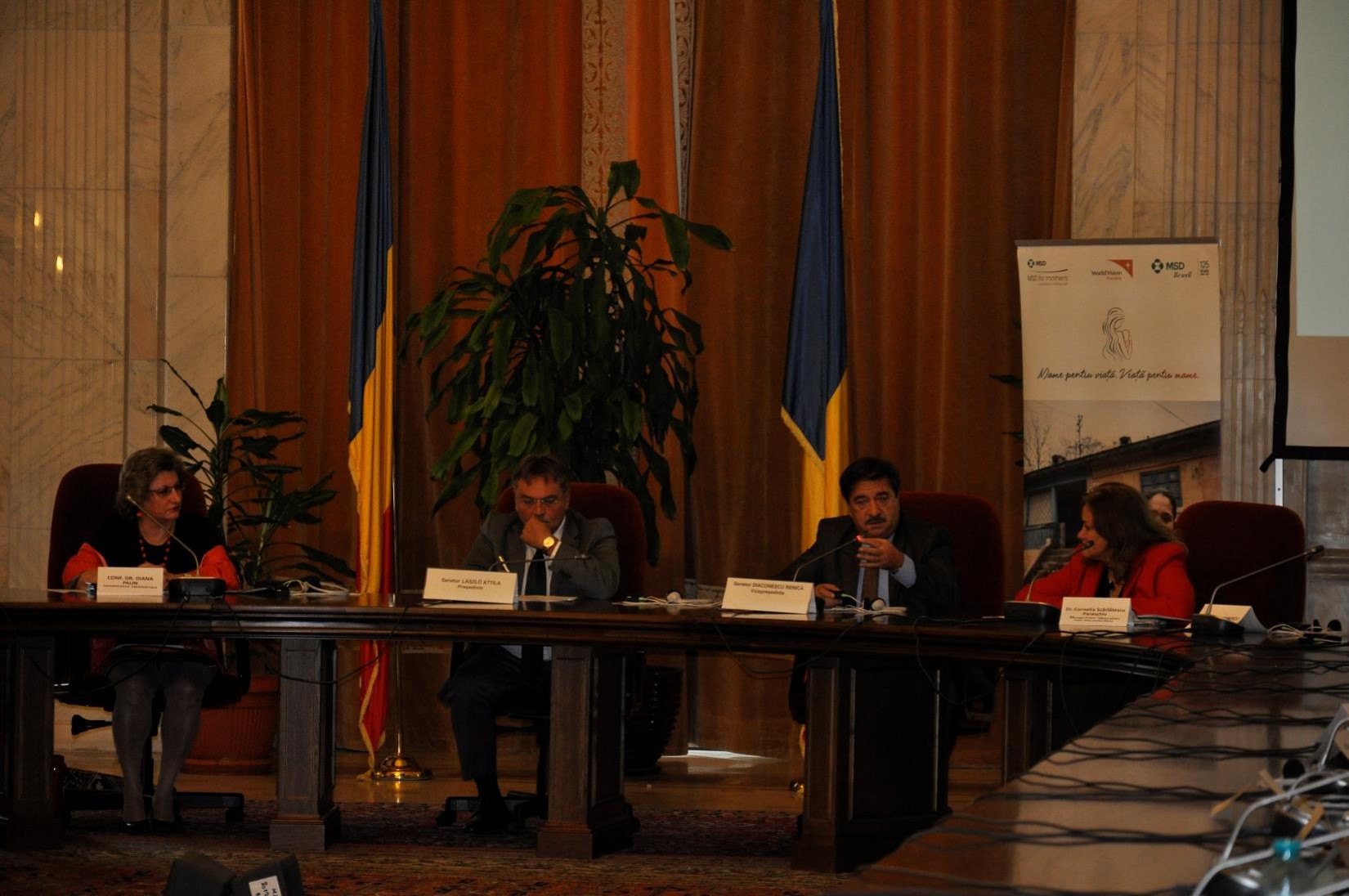Debate: "The Equity of Medical Services for Vulnerable Mothers in Romania”

World Vision Romania’s “Mothers for life. Life for Mothers” project, the most extensive programme in Romania targeting the decrease of maternal mortality rates, celebrated the "Safe Motherhood” International Maternal Health Week by organising a vast debate regarding the community-based health services in Romania within the current legal framework. The event was called "The Equity of Medical Services for Vulnerable Mothers in Romania” and it was hosted by the Romanian Parliament on 10 October 2017.
The main objective of the debate was to identify the role of community-based health services in developing nationwide models of medical, social and educational interventions aiming to ensure access to antenatal medical care for all women in vulnerable communities, based on the principle that maternal health is a fundamental human right. The topics included the responsibility of local and central public authorities in organising, functioning and financing the community-based health services along with the identification of the funding opportunities through European funds for the community centers and the training of relevant human resources.
The event was opened by Dr. Laszlo Attila, the President of the Public Health Committee in the Senate and by the State Counselor at the Presidential Administration, Dr. Diana Păun, both underlining the importance that the mother and child policies must have within the Romanian public policies.
The representative of the Ministry of Health, Mrs. Director Lidia Onofrei presented the actual stage of the community-based health services and the need of collaboration between community nursing, social assistance, sanitary mediators, the primary health care network and the local public health authorities in addressing the needs of the vulnerable groups in local communities, mainly of pregnant women and children.
World Vision Romania took the opportunity to present the results of the „Mothers for Life. Life for Mothers” project after 18 months of implementation and made recommendations based on the identified barriers faced by vulnerable rural women in accessing antenatal and family planning services.
• 6,400 women from Vâlcea, Dolj and Vaslui districts have been informed through educational sessions held by community educators about reproductive health, optimal birth spacing interval and the right to free of charge medical services.
• Two mobile applications have been designed to provide text alerts regarding the ovulation calendar and the antenatal care for better information and education of vulnerable women. 4,000 text messages have been sent to 450 beneficiaries.
• 400 pregnant women have been monitored, informed and counseled to access antenatal medical care.
• Two e-learning courses for family doctors have been designed on medical care for pregnant women and uploaded on the edu-cnsmf.ro platform. The courses are certified by the Romanian College of Physicians and free of charge until next year.
"This pilot project developed integrated solutions that are also cost-effective, innovative and nationwide applicable. These solutions aim to inform and educate vulnerable mothers and to facilitate their access to medical services. The access to a maternal care package of services must be equal and equitable for all women, regardless of their status or financial situation. The barriers they are facing currently should be overcome through aligning the maternal health policies to the other relevant policies”, stated Dr. Cornelia Scărlătescu Paraschiv, Project Manager of “Mothers for Life. Life for Mothers”, World Vision Romania.
The event benefited of the presence of Mrs. Mary-Ann Etiebet, MD, Executive Director of the International Programme MSD for Mothers, who stated: “We invested US$500,000 in this project because we know that the lives of these mothers are priceless. When a mother dies, her other children are ten times more exposed to the risk of school abandonment and unwanted pregnancies for teenage girls."
The debate was attended by representatives of the Presidency. Parliament, Ministry of Health, District Public Health Authorities, Ministry of Labor and Social Justice, Ministry of Regional Development, Public Administration and European Funds, SOGR, SNMF, INSMC, OAMGMAMR, The Associations of Romanian Mayors in Rural Communities, The Association of Independent Midwives, mayors, family doctors, community nurses from six districts, NGOs, journalists and specialists.
In Romania one out of five pregnant women had no medical examination before giving birth and the maternal mortality rate is twice as high as the European average, three times higher than in Slovenia, Slovakia and Bulgaria, almost six time higher than in Italy and Spain and ten times higher than in Austria and Poland. One out of four rural women is not insured and one in ten pregnant women is minor. 26,000 teenage pregnancies were reported in 2015 and the number is increasing in rural areas. The mortality rate during the first semester of 2017 has increased alarmingly to 19,5/100,000 live births, being twice the rate in 2016, 8,9 deaths at 100,000 live births. This proves a major deficiency in the assistance and monitoring of pregnant Romanian women (source INSMC).
Please watch the video clip presented during the debate, a true example of the situation of pregnant teenagers in rural Romania: https://www.youtube.com/watch?v=PPvRf-lMkm4

